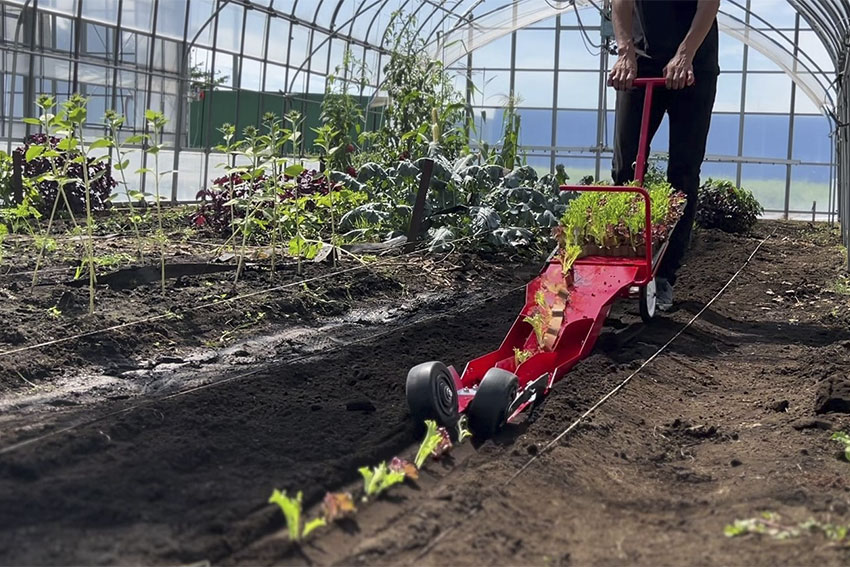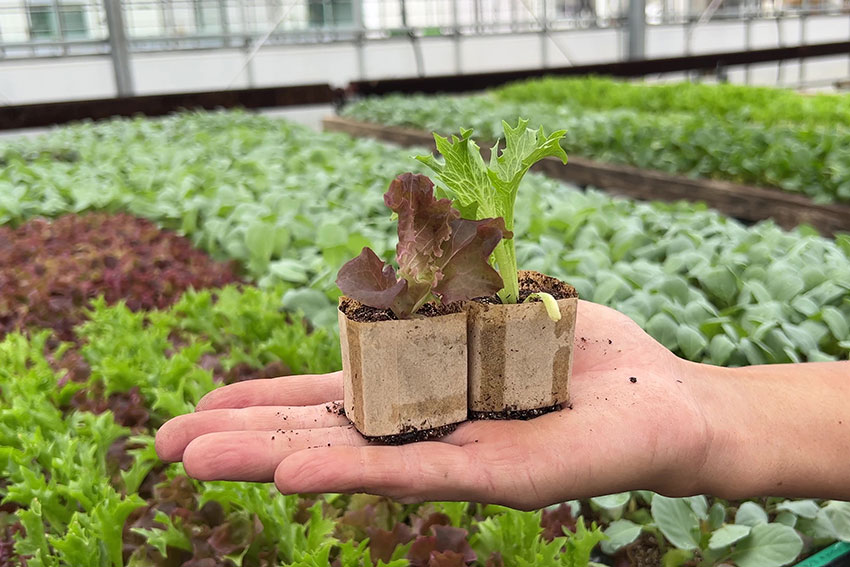Nestled in Japan’s far north, Nitten are supporting local farmers while developing solutions to some of agriculture’s biggest challenges.

By Daniel de Bomford, Cian O Neil and Paul Mannion
With long winters, deep snow and isolated geography, few places in the world offer a greater challenge for agriculture than Hokkaido Japan. But in this challenging environment, Nippon Beet Sugar Manufacturing Co., Ltd. (Nitten), founded in 1919, has built a thriving enterprise in conjunction with the local agricultural community. Nitten brings over a century of experience growing in Hokkaido and has contributed to the establishment of crop rotation and advancements in local agriculture. Through a forward-thinking approach, Nitten has risen to become the leading manufacturer of beet sugar in Japan and supplies over 40 percent of the market. It doesn’t limit itself to beets only, it also produces agricultural materials, animal feed and functional foods. With both the Japanese domestic industry and market in decline, Nitten is looking to continue to develop their products and expand into the international market, leveraging the expertise they have cultivated. This ambition has driven Nitten into an enviable position as its environmentally conscious techniques and technology are highly desirable in the present eco-conscious world.
President Shu Ishikuri says Nitten has maintained a close relationship with farmers and the agricultural community, helping build the stable beet production system. “This relationship with farmers, agricultural societies and local governments is the essential base of our company,” he explains. With the labor pool in the sector shrinking, Nitten is providing more efficient methods of farming to the agricultural community, with hardier varieties of crops and more efficient tools and techniques. Mr. Ishikuri explains, “Our proposals are effective for both older farmers and successive young farmers.” Nitten has achieved a highly efficient production system in partnership with local growers, with high quality produce as a result. Perhaps most impactfully, Nitten’s investment into research and development has been responsible for many of the breakthroughs in agriculture, like its paper pots and Hippari-kun planter.
“Paper pot was originally developed for growing sugar beets over 60 years ago for the purpose of expanding the growing season of sugar beets under the cold climate of Hokkaido,” Nitten’s paper pots have been so effective in Hokkaido that they have been exported abroad. The paper pot and its successor, the chain pot are both staples in Hokkaido and increasingly in organic and environmentally conscious farms abroad. Paper pots are advantageous because they don’t use plastics and they reduce the time it takes to transplant. Furthermore, the initial investment is lower than other methods and Hippari-kun—which was invented 30 years ago—has no engine, making maintenance simpler and eliminating energy usage. Nitten looks to expand the paper pot business globally, with a vision to make local agriculture sustainable and less laborious.

Beyond paper pots, Nitten’s R&D is making waves in the functional food sector and not just for humans, for livestock feed too. It has developed and has been the only successful manufacturer of difructose anhydride III (DFA III), a functional oligosaccharide which improves the mineral absorption in cows, enhances immunity in calves and contributes to overall health in cattle. With their success in dairy cows, the Nitten research team is looking at whether DFA III will benefit other livestock.
DFA III has become the golden standard in Japan because it contributes to the ongoing health of cattle. Now, Nitten is working towards exporting to Europe and the rapidly growing dairy industry in Asia. Mr. Ishikuri explains that the animal feed sector has their highest growth expectations and their primary strategy for revenue growth is based on DFA III, healthy feeds and algae products. “That department has set a goal of tripling its operating profits over the next five years, from JPY 400 million to JPY 1.2 billion,” he says.
To ensure that growth Nitten has eyes on the international market, “Our Paper Pot business already has very good relations with our US partners and from now on, we plan to expand that Paper Pot business to Europe and China,” Mr. Ishikuri says. Nitten is currently in the process of establishing a European office for livestock feed and is planning on expanding into South-east Asia and Oceania.
Looking ahead, Nitten’s continued innovation, research and sustainable practices ensure its continued leadership in agriculture, not just in Hokkaido, but all of Japan. By expanding globally, fostering local relationships and developing eco-friendly technologies, Nitten remains poised to thrive in the evolving agricultural landscape, benefiting farmers and consumers alike.
0 COMMENTS